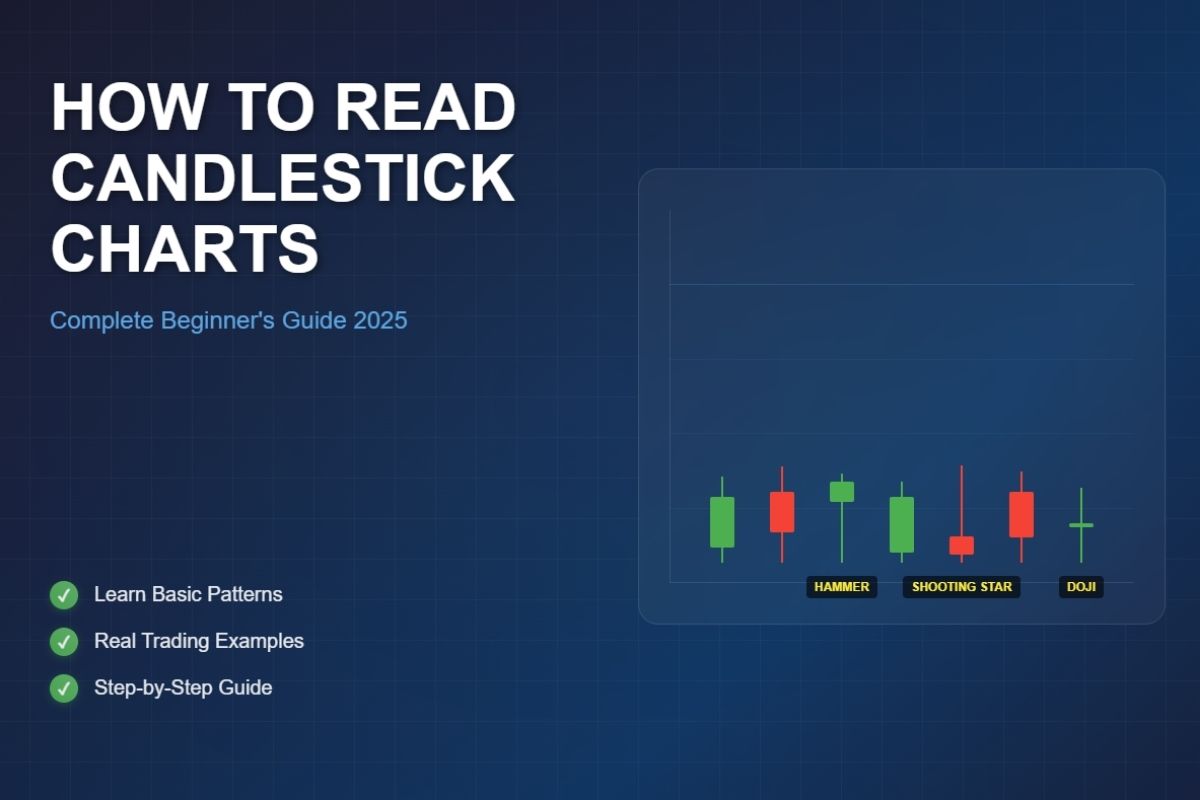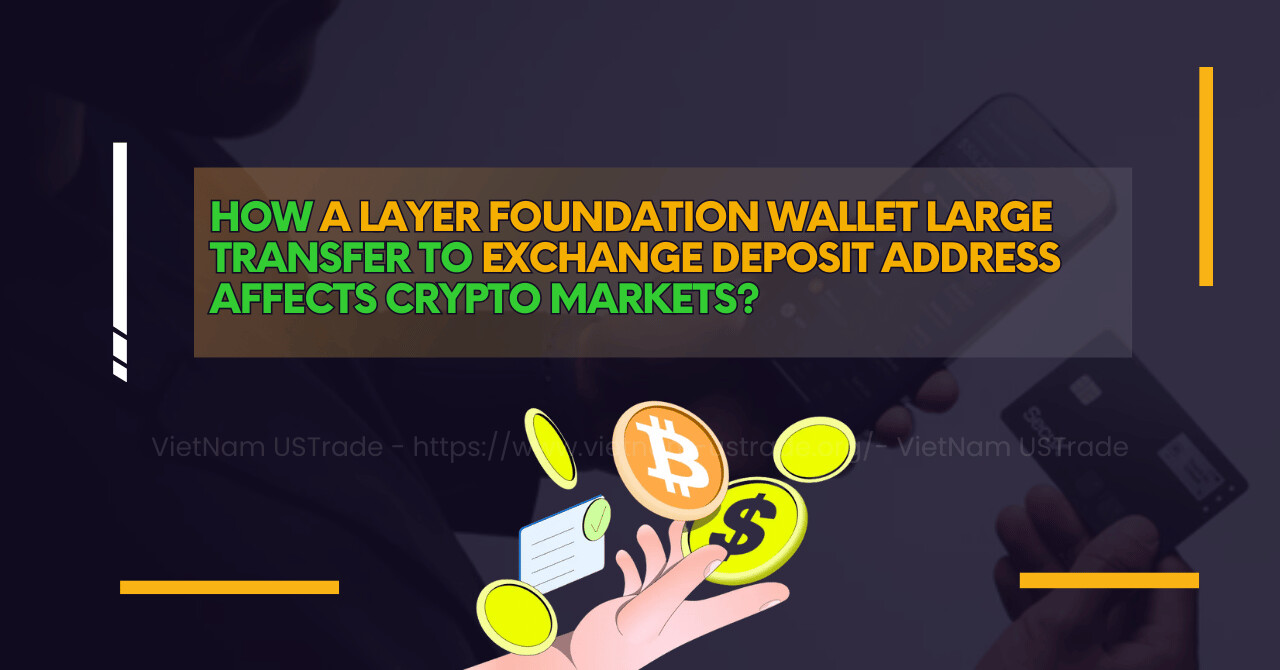Which crypto exchanges are legal in NY BitLicense, and why does it matter? New York’s strict crypto laws make it difficult to know which exchanges are allowed to operate but BitLicense is the key to clarity. If you’re a trader or investor in New York, understanding this license is crucial to avoid legal risks and access safe platforms.
In this article, we’ll show you how BitLicense works, list compliant exchanges, and guide you through safe crypto trading in NY courtesy of Vietnam-UStrade.
1. What is BitLicense and why does it matter?
BitLicense is a regulatory license introduced by the New York Department of Financial Services (NYDFS) in 2015. It applies to businesses involved in virtual currency activities, including exchanges, wallet providers, and certain service platforms. The main goals are consumer protection, preventing money laundering, and ensuring financial stability within New York.
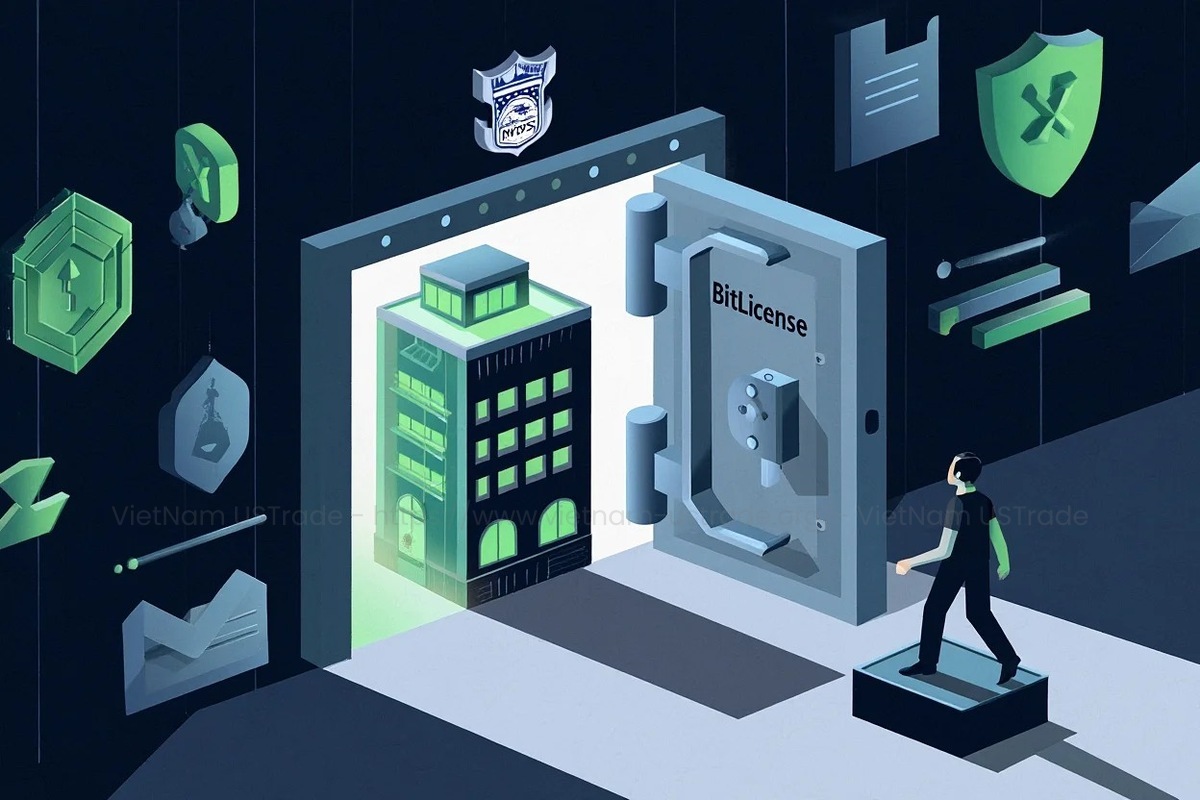
The BitLicense came about as a response to growing concerns over the risks involved in crypto transactions. Its strict rules require companies to implement strong safeguards, report suspicious activities, and maintain proper records. However, its introduction also led to some platforms choosing not to operate in New York due to the high compliance costs.
| Year | Event |
|---|---|
| 2015 | BitLicense launched by NYDFS |
| 2018 | First major regulatory enforcement actions |
| 2022 | Proposals for BitLicense reform introduced |
| 2025 | Latest updates and ongoing regulatory reviews |
It’s helpful to compare BitLicense with the Trust Charter, another type of license issued by NYDFS. While BitLicense focuses mainly on virtual currency activities, a Trust Charter covers broader fiduciary responsibilities. Some exchanges hold both to serve New York residents fully.
- BitLicense: Required for virtual currency businesses; strict AML and consumer rules.
- Trust Charter: Broader financial oversight, custody capabilities, and fiduciary duties.
This dual licensing helps ensure clarity for those wondering which crypto exchanges are legal in NY BitLicense context.
2. Which crypto exchanges are legal in NY BitLicense?
If you’re unsure which crypto exchanges are legal in NY BitLicense, here’s a breakdown of the current licensed platforms. To be considered legal, exchanges must hold either a BitLicense or a Trust Charter issued by NYDFS. This status confirms they meet New York’s regulatory standards.

Below is a breakdown of some of the most prominent crypto exchanges and their licensing status under NYDFS:
| Exchange | BitLicense | Trust Charter | NY Services (2025) | Notable Restrictions |
|---|---|---|---|---|
| Gemini | Yes | Yes | Trading, custody, staking | No derivatives trading |
| Coinbase | Yes | No | Buy/sell, withdrawals | Limited staking options |
| Robinhood | Yes | No | Crypto buying, selling | No withdrawals to external wallets |
| eToro | Yes | No | Trading, limited crypto services | Restricted coin listings |
| Bitstamp | No | Yes | Trading, custody | Some service restrictions |
| SoFi | Yes | No | Trading, crypto rewards | No derivatives |
| Webull | Yes | No | Buying/selling, limited crypto features | Restricted withdrawals |
| Uphold | Yes | No | Trading, multi-asset support | Limited staking |
For the most current list and updates, check the NYDFS BitLicense registry online. These licenses ensure that residents can trade, hold, and manage cryptocurrencies with a level of consumer protection not found in states without such rules, and clarify which crypto exchanges are legal in NY BitLicense, helping residents avoid unregistered or risky platforms.
3. Details of exchange permissions and NY-specific limitations
Let’s explore in more detail how each licensed exchange operates within New York and what specific limitations apply.
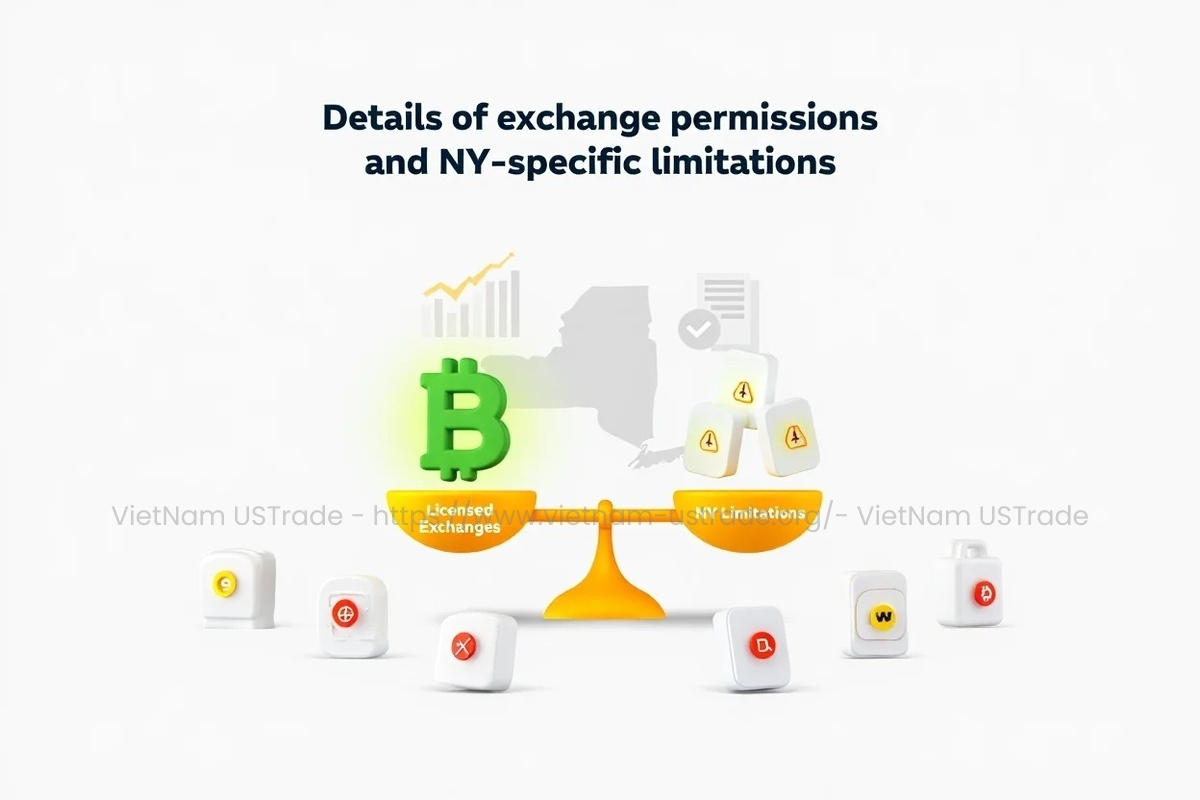
Gemini: Holds both BitLicense and Trust Charter. Offers full trading, custody, and staking services in New York, though derivatives trading is prohibited under NY rules.
Coinbase: BitLicense holder with approval for basic crypto buying, selling, and withdrawals. Staking features are limited, and some coins available elsewhere are not offered in NY.
Robinhood: Holds BitLicense but restricts withdrawals to external wallets, focusing on in-platform transfers. Derivatives are not available to New York users.
eToro: Licensed with BitLicense but operates under tighter restrictions, such as limited coin listings and feature sets, to comply with NY regulations.
Bitstamp: Holds a Trust Charter but no BitLicense. Offers trading and custody but limits certain services like staking or derivatives.
SoFi and Webull: Both have BitLicense approvals, focusing on crypto buying and selling. They restrict derivatives and place limits on withdrawals or staking for NY users.
Uphold: Licensed with a BitLicense for trading and multi-asset support. Some features like staking are limited due to compliance rules.
These individual cases illustrate how New York’s regulations define which crypto exchanges are legal in NY BitLicense and what services they’re allowed to offer.
4. Crypto exchanges and platforms not available in NY
Many major global exchanges do not serve New York residents legally because they lack BitLicense approval or choose not to comply with NY’s strict rules.
- Binance
- Kraken
- Crypto.com
- Bybit
- Shapeshift
- Bitfinex
These exchanges cite high compliance costs and regulatory uncertainty as reasons for avoiding New York. It’s estimated that over 60% of top global crypto exchanges are unavailable to NY users.
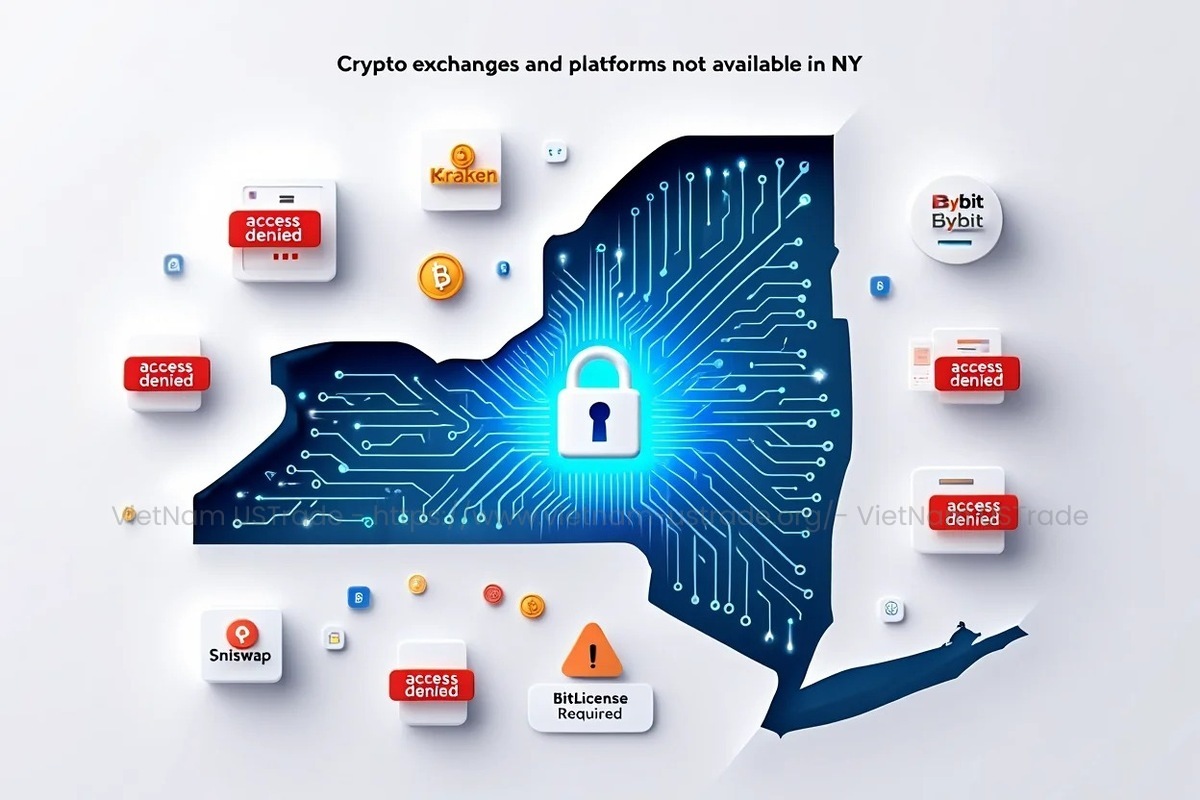
Decentralized Finance (DeFi) platforms and decentralized exchanges (DEXs) operate in a legal gray area. While technically accessible, their use by New York residents is complicated by IP-based restrictions and lack of direct regulatory oversight.
5. How NY residents can register and use legal crypto exchanges
New York residents face some of the strictest cryptocurrency regulations in the U.S., governed by the state’s BitLicense framework. Understanding which crypto exchanges are legal in ny bitlicense is essential for safe and compliant trading. This guide explains how to identify approved platforms, register properly, and use them within the law.
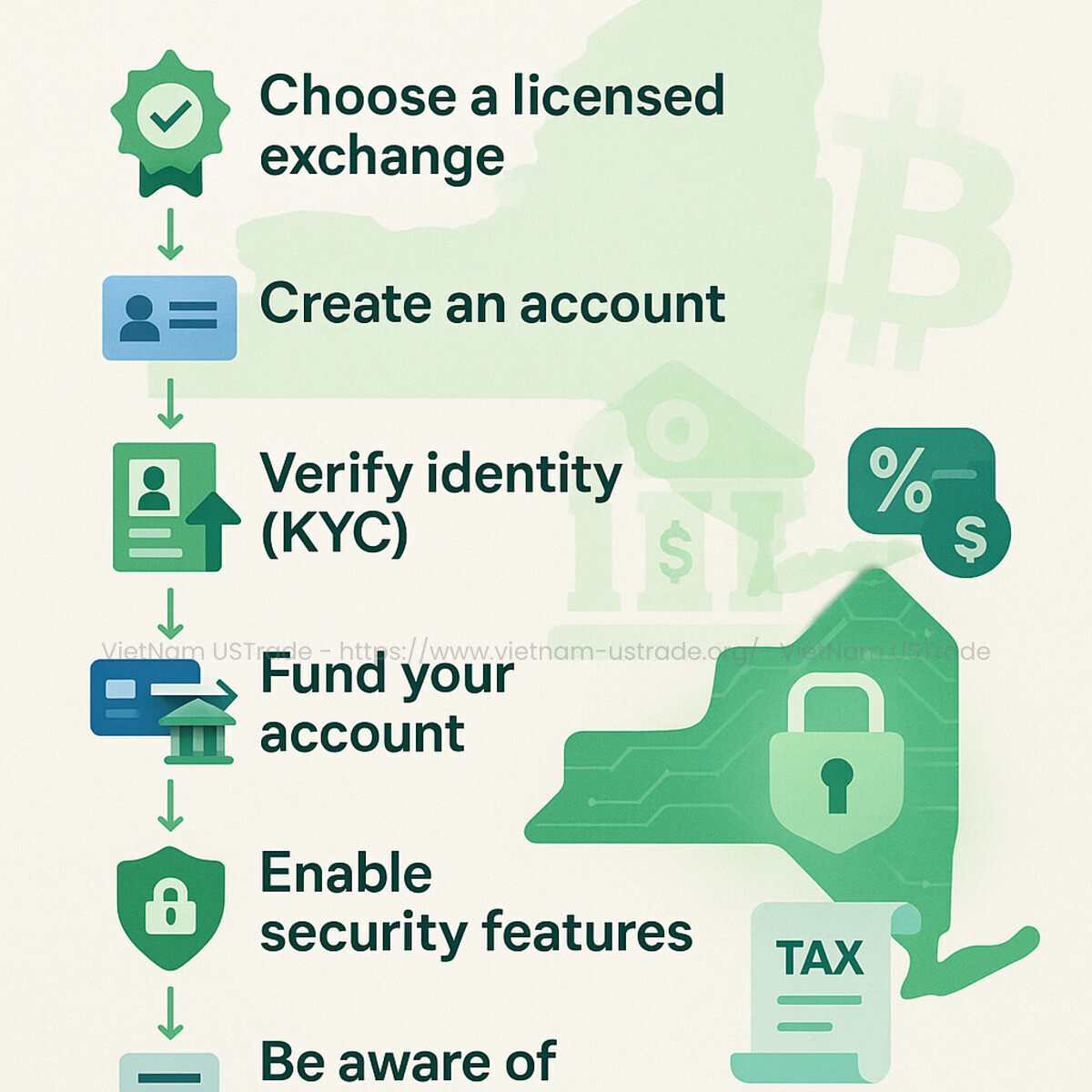
If you’re wondering how to use and buy bitcoins safely within New York’s laws, follow these verified steps:
- Choose a licensed exchange: Verify it holds BitLicense or Trust Charter.
- Create an account: Provide your real name and contact details.
- Complete Identity Verification (KYC): Submit documents like a driver’s license or passport. Verification usually takes 1–7 days.
- Fund your account: Use permitted methods such as bank transfer, ACH, or debit/credit card. Cash deposits are generally not allowed. These funding methods align with state regulations and clarify how to pay for bitcoins when using compliant platforms in New York.
- Enable security features: Use two-factor authentication to protect your account.
Learn how to buy bitcoins safely through licensed platforms.
Keep in mind withdrawal limits and tax reporting requirements. Exchanges provide forms and statements to assist with compliance.
6. Unique New York crypto compliance rules (KYC/AML/Reporting)
New York’s crypto rules require businesses to go beyond federal standards in several ways:
- Enhanced KYC: Detailed identity checks for all users.
- AML Measures: Monitoring and reporting suspicious transactions to NYDFS.
- Recordkeeping: Exchanges must keep comprehensive records and maintain capital reserves to manage risk.
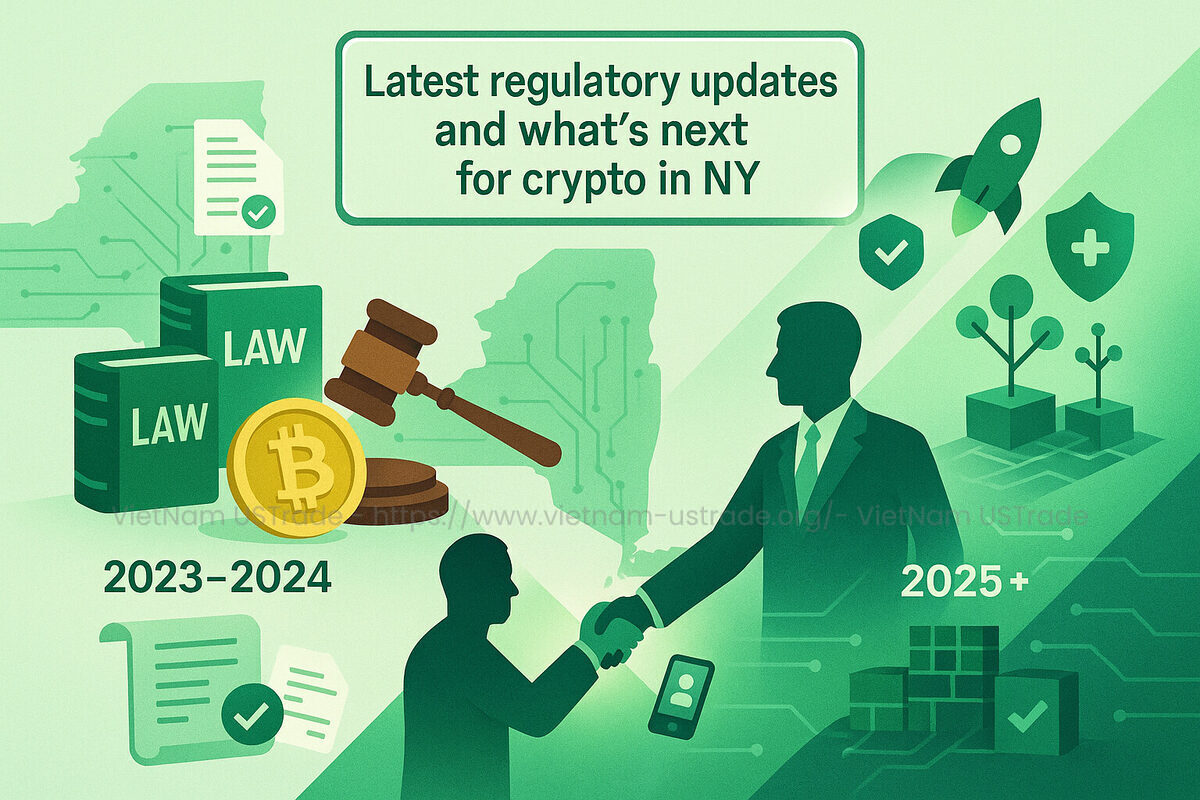
These strict rules explain why some exchanges offer fewer coins or block certain features like derivatives and staking in New York. It is designed to protect users but limits the full crypto experience available elsewhere. They also help define which crypto exchanges are legal in NY BitLicense terms, giving users a clear boundary of compliance.
7. Consumer protections and dispute handling for NY crypto users
BitLicense requirements include safeguards such as secure custody of assets, clear disclosures, and an accessible complaint process.
If you face an issue with a licensed exchange, you can:
- Contact the exchange’s customer service first.
- If unresolved, file a complaint with the NYDFS via their official portal.
- NYDFS reviews complaints and can enforce corrective action.
These protections provide peace of mind, showing that New York prioritizes consumer safety in crypto trading.
8. Latest regulatory updates and what’s next for crypto in NY
- 2023-2025: NYDFS introduced new guidance aiming to balance regulation with innovation.
- Recent legislative proposals seek to reform BitLicense to reduce burdens for startups.
- High-profile enforcement actions remind exchanges of strict compliance expectations.
- Ongoing dialogue between regulators and industry may lead to new rules making NY more crypto-friendly while maintaining safety.
These developments reflect a maturing regulatory environment focused on protecting users while encouraging responsible growth.
Related reads to deepen your knowledge:
- How much are bitcoins worth
- How much are bitcoins worth in us dollars
- How much bitcoin did ross ulbricht have
9. Supplementary: Key FAQs about crypto legality and BitLicense in NY
9.1 Does every crypto business in NY need a BitLicense?
Generally yes, unless exempted under specific categories by NYDFS.
9.2 Is using a VPN to access blocked exchanges legal or safe?
It may violate terms of service and local laws. It’s risky and not recommended.
9.3 What if I leave or move to NY?
Your access rights depend on your residency; exchanges update access based on user location.
9.4 Are there purchase or withdrawal caps for NY users?
Yes, limits vary by exchange due to regulatory compliance.
9.5 Is DeFi or self-custody legal in NY?
Generally legal but less regulated and carry higher risks. NY law is still evolving on this.
9.6 How can I find out which crypto exchanges are legal in NY BitLicense?
You can refer to the NYDFS BitLicense registry or follow licensed exchanges listed in this article. Staying updated helps ensure legal and secure trading.
10. Conclusion
Understanding which crypto exchanges are legal in NY BitLicense is essential for safe trading. New York’s regulatory landscape may seem strict, but it offers strong consumer protections and financial integrity through BitLicense.
In this article, we reviewed the importance of BitLicense, listed compliant exchanges, outlined how to register safely, and discussed unique compliance rules for NY users.
- Choose exchanges with BitLicense or Trust Charter
- Complete KYC and follow NYDFS requirements
- Be aware of feature limitations (staking, withdrawals, derivatives)
- Use NYDFS portal for dispute resolution
Don’t forget to follow the Trader & Trading category on Vietnam-UStrade to stay updated with the latest crypto regulations and exchange options.
Have you faced challenges trading crypto in New York?
Hopefully, this guide helps you trade safely and avoid legal risks.
Feel free to drop your questions or thoughts below and explore more on our site if you’re curious about other crypto topics!

